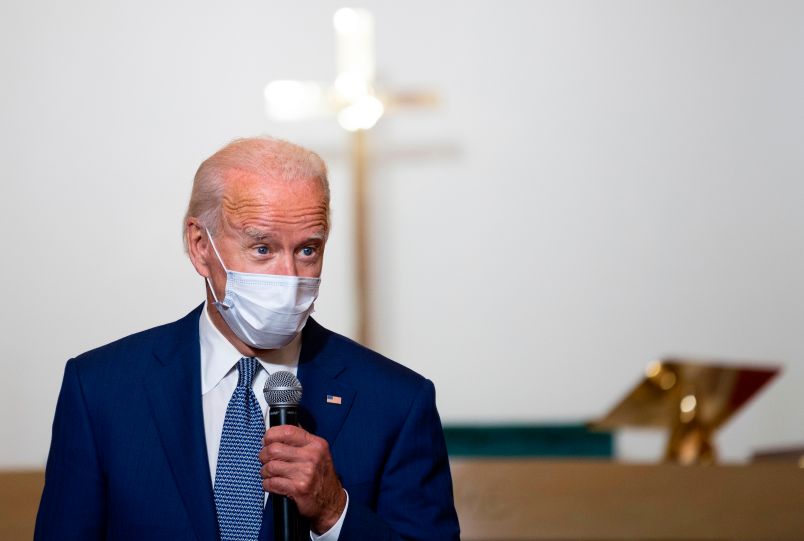Democratic presidential nominee Joe Biden’s economic proposals would yield a faster growing economy, increased wages and would lower the federal debt, a new analysis published Monday from the University of Pennsylvania’s Wharton School suggests.
CBS reports that the findings, which compare Biden’s policy agenda to those of President Donald Trump’s, may offer an edge to Biden who, in spite of leading Trump broadly in the polls, has trailed on economic issues.
The Wharton analysis found that Biden’s proposals on education, infrastructure and health care would mostly pay for themselves by raising taxes, boosting wages and reducing health care costs.
According to the analysis, by 2050 the Biden platform would reduce the federal debt by just over 6 percent while boosting GDP by 0.8 percent relative to existing policy.
“If you got the U.S. on this path, you would lower the debt and raise GDP,” Richard Prisinzano, the director of policy analysis at the nonpartisan group, Penn Wharton Budget Model told CBS. “It is productive spending that Mr. Biden is proposing.”
Wharton school researchers used projections made by the Congressional Budget Office on the status of the economy in ten years according to Trump’s existing plans and 2017 tax cuts to compare against Biden’s proposals to make its assessment.
Biden’s proposal would also increase government spending and raise taxes, largely for higher-income Americans, the analysis found. Almost 80 percent of the increase in taxes under Biden’s tax plan would be shouldered by the top 1 percent of the income distribution.
Wharton’s analysis, which was compiled over several weeks, does not include Biden’s recent proposal to use taxes to penalize companies that move jobs and manufacturing overseas.
Prisinzano told CBS that Penn Wharton could not offer a similar analysis for Trump since the Republican candidate hasn’t offered plans for his second term with enough detail.



